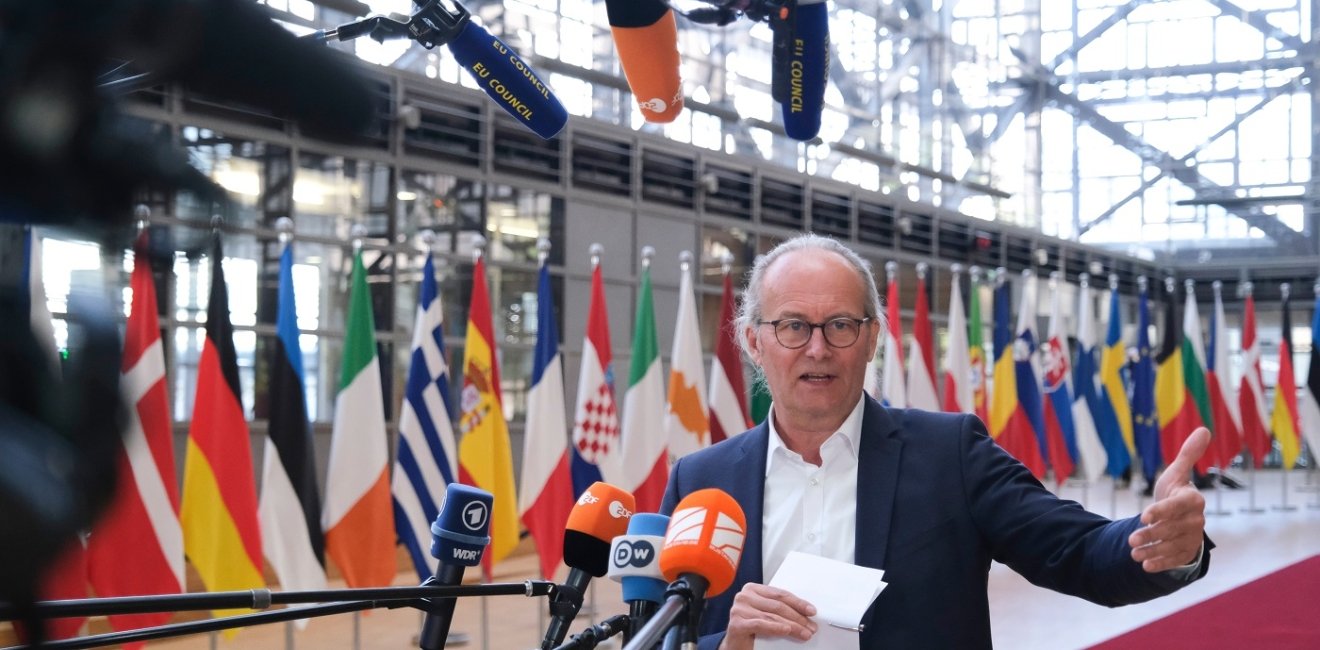
A blog of the Kennan Institute
BY ANDRIAN PROKIP
On July 26, the Transport, Telecommunications and Energy Council of the EU held an extraordinary meeting. It was convened to address the possible upcoming energy crisis caused by a radical decrease in Russia’s gas supplies to the EU, and to develop a political agreement on reducing gas consumption in the EU to get through the winter during the crisis.
The energy minister of Luxembourg, Claude Turmes, said the meeting had produced a historic decision. It’s hard to argue with this point: the plans and resolutions that emerged from the meeting may be among the most significant in the EU’s energy policy and in shaping Europe’s future.
In March, the EU committed to phasing out its energy dependency on Russia as soon as possible. This was prompted by Russia’s military aggression against Ukraine, which “has massively disrupted the world’s energy system,” according to the European Commission’s statement. Later, the commission adopted the REPowerEU plan, which prescribes ways to reduce Russia’s energy dominance in the EU.
In May, it became clear that Russia had started preparations to decrease gas supplies to the EU. In early July, gas supplies were about three times less than usual. That was part of Russia’s gamble to put pressure on the EU and try to force it to soften its sanctions toward Russia and conduct business as usual.
Even before that, however, Russia had used energy supplies as leverage to achieve its political and economic goals. In 2021, seeking extra profits, Gazprom undersupplied gas to Europe, affecting prices. At the same time, Russia blamed the EU’s policy on renewables and energy markets for the spike in gas prices.
In early summer, EU officials realized the risk of Russia suspending gas supplies. To survive during the upcoming winter, the European Commission presented a “Save Gas for a Safe Winter” plan on July 20. This initiative stipulates a 15 percent across-the-board reduction in gas consumption.
The European Commission assessed that if Russia cut supplies in July, the EU would lack 30 billion cubic meters (bcm) of gas in the event of an ordinary winter and 45 bcm should the winter be unusually cold. The latter amount, 45 bcm, is equal to 15 percent of consumption.
Among key measures to achieve the target reduction is gas substitution with other fuels and a voluntary decrease in gas consumption by industrial and home consumers.
Specific steps recommended to lower gas consumption include lowering heating and hot water temperatures, reducing the intensity of cooling, and reducing gas usage in electricity production, among others. Informational campaigns are expected to play a huge role in improving citizens’ awareness of the need to save gas.
One week after the plan was published, EU energy ministers approved it in record time during the July 26 meeting. It seems clear that Russia's behavior was pushing the EU to make the decision.
Russia was watching the outcome of the meeting closely. Russian gas delivery via the Nord Stream 1 pipeline fell on the day of the meeting, and the next day Gazprom announced a further reduction in supply, to just 20 percent of installed capacity, a record low level. This naturally caused another spike in the price of gas.
The deal on the voluntary reduction of gas consumption stipulates possible exemptions for states whose energy systems are not well connected to the rest of the EU. In the case of pipelines, these are island states—Northern Ireland and Malta. With respect to the electricity grids, these are the Baltic states, Estonia, Latvia, and Lithuania, whose power systems are not yet synchronized with the European ENTSO-e system.
But during the meeting, all these states expressed their commitment to reducing gas consumption. Hungary was the only country that withheld agreement to a voluntary decrease in gas consumption. Russia’s ally in the EU does not always share EU policy and principles and gets discounts on Russian energy supplies.
Even though one country refused, in general, such unity regarding Russian energy is revolutionary. A few years ago the EU was much more divided over the Nord Stream 2 pipeline project. The first vice-president of the European Commission, Frans Timmermans, said at the July 26 meeting that the EU had demonstrated unity in withstanding pressure from Russian president Vladimir Putin, who sought to divide the EU by manipulating oil and gas supplies and discounts. Robert Habeck, vice chancellor of Germany, the biggest consumer of Russian gas in Europe, said that the agreement would show Vladimir Putin that Europe remained united in the face of Moscow's latest gas cuts.
Some European states have relied on Russian energy for decades, turning a blind eye to Russia misusing energy supplies as leverage over the years. But the situation may change radically, which would fundamentally alter Europe’s energy policy and Russia’s future role in the global energy networks.
If the EU manages to survive Russia’s energy gamesmanship and to phase out dependence on Russian energy in the near future, this would mark a second revolutionary turn in the EU’s energy policy, after the shift to clean energy sources.
The decision to resist Russia’s energy blackmail attempt is also a demonstration of support for Ukraine: Europe does not betray Ukraine despite the costs to its economy.
The opinions expressed in this article are those solely of the author and do not reflect the views of the Kennan Institute.
Author

Director, Energy Program, Ukrainian Institute for the Future

Kennan Institute
After more than 50 years as a vital part of the Wilson Center legacy, the Kennan Institute has become an independent think tank. You can find the current website for the Kennan Institute at kennaninstitute.org. Please look for future announcements about partnership activities between the Wilson Center and the Kennan Institute at Wilson Center Press Room. The Kennan Institute is the premier US center for advanced research on Eurasia and the oldest and largest regional program at the Woodrow Wilson International Center for Scholars. The Kennan Institute is committed to improving American understanding of Russia, Ukraine, Central Asia, the South Caucasus, and the surrounding region through research and exchange. Read more

Explore More in Focus Ukraine
Browse Focus Ukraine
Talking to the Dead to Heal the Living

Ukrainian Issue in Polish Elections


